The movement to save Aarey forest – known as Mumbai’s green lungs – from construction activities has awakened again. Every Sunday the area is packed with protestors sloganeering, holding placards, and shouting anthems of resistance.
What best encapsulates the sentiment on the ground are the first two lines of the song ‘Aarey chi Kalji’, which went viral recently: “Sarkar yeil sarkar jaail jhaad tu todu nako, ugaach kamal gheoon haataat Aarey la chedu nako” (Governments will come and go, do not cut our trees. Holding a lotus in your hand, do not play with our Aarey.)
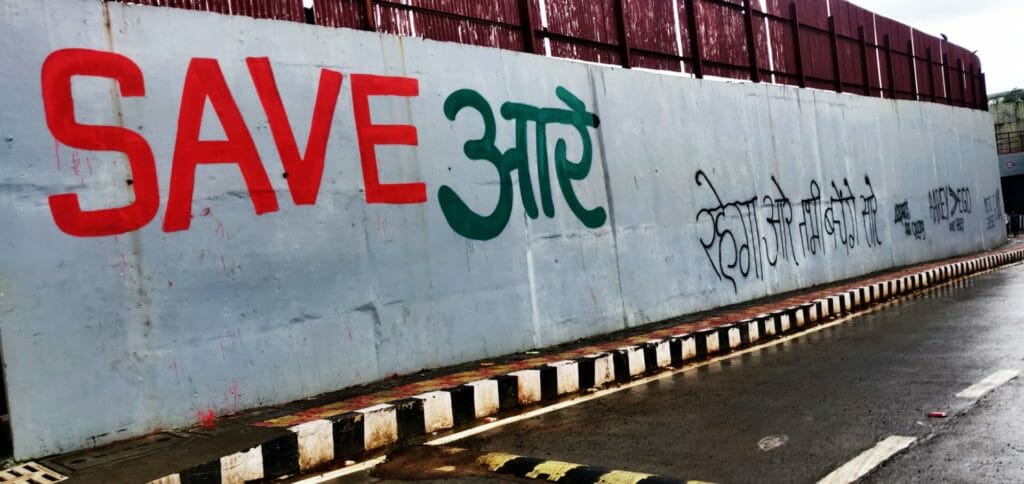
The Supreme Court on August 24th directed the Mumbai Metro Rail Corporation Limited (MMRCL) to strictly abide by its undertaking that no trees would be cut in Aarey until the next hearing on August 30th. The court had also barred the authorities from cutting trees in 2019 but had put no stay on the construction of the car shed for metro line 3. However, earlier this month, protestors alleged that more trees were cut after the project was moved back to Aarey from Kanjurmarg. The MMRCL denied this allegation in the top court.
Read more: The story of Aarey forest under three governments
Songs to save Aarey homes
Aarey Chi Kalji went viral when members of Aarey Key Foundation (AKF) performed it on a metro train. While the melody has been borrowed from a song by well-known Marathi artists Ajay and Atul, a 25-year-old AKF member, Laxman Jadhav, wrote the lyrics. The 15-member group sings together as five of them playing instruments like a harmonium, a Cajon, a guitar, and at times a ukulele. “We did not expect it to go viral,” Laxman says.
All the members of AKF are residents of the 27 Adivasi padas (tribal hamlets) in the Aarey Colony. Laxman says that he does not belong to a tribal community but “there are other members in AKF that do”.
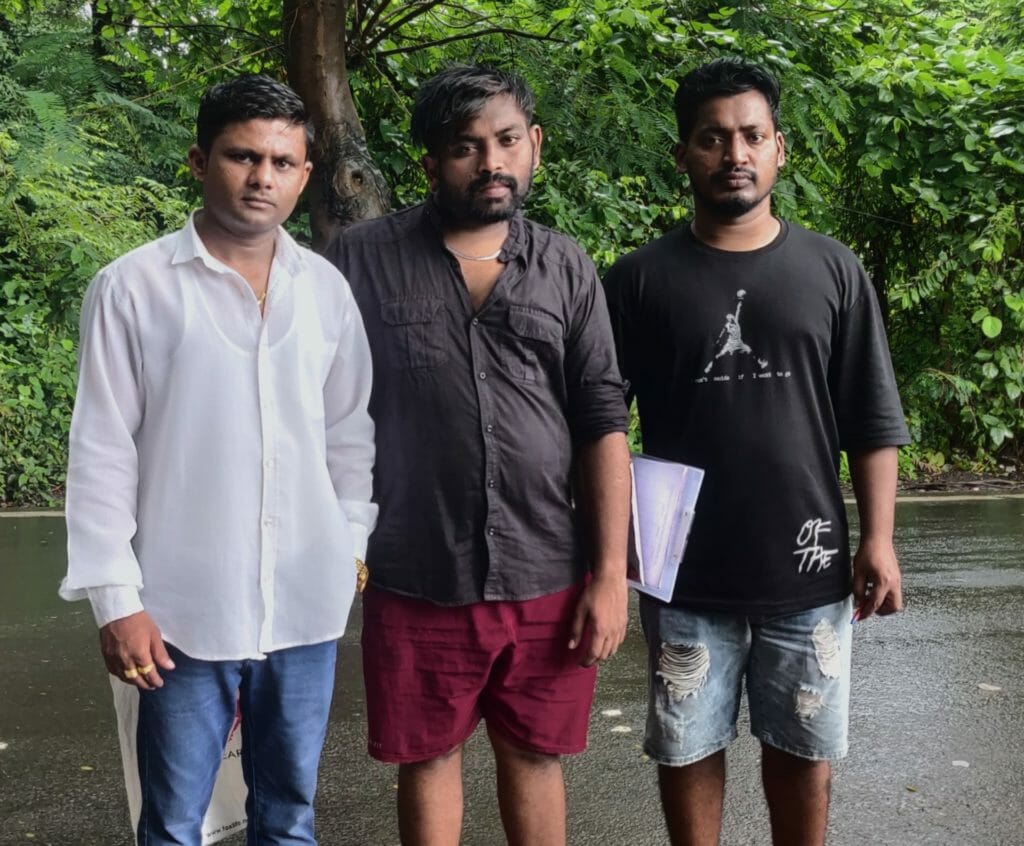
“The area belongs to the adivasis and there are people from different communities who live here as well,” he says. Laxman has written a few songs on Aarey, which includes a Powada, a folk style to write and sing a song typically glorifying the 17th-century monarch Shivaji but the one that is also used to generate social awareness. He wants the Save Aarey movement to reach ordinary Maharashtrian homes, which is why the language he mostly writes in is Marathi and not Hindi.
Laxman’s grandfather migrated to Aarey from rural Maharashtra in the 1950s. A little before that, a dairy was established in the area, for which a total of 3,166 acres of forest land was taken out of the Sanjay Gandhi National Park. The tribal communities in the area, as well as those like Laxman’s grandfather, were encouraged to take part in the animal husbandry and dairy process. “None of us living in Aarey Milk Colony would be able to survive elsewhere. The forest is our home,” he says.
This sentiment is also echoed in his song: “Yeil divas udycha navyaane, udyaachi aamhaa kaalji re” (There will be a new tomorrow after this that we may have to face, and it is that tomorrow that we are worried about)
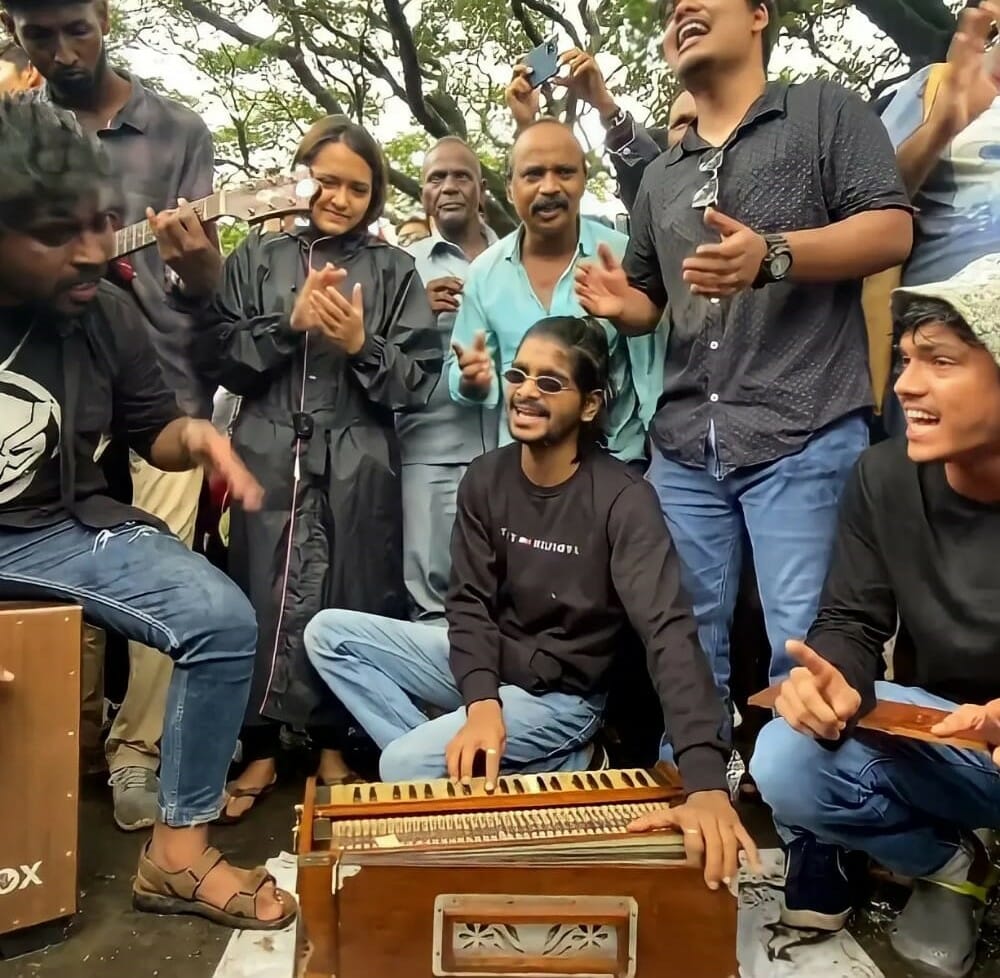
Adivasi voice in save Aarey
The Save Aarey movement peaked in 2019 when thousands of protestors rushed to Aarey after the news of authorities cutting trees spread. Many were arrested and later released on the orders of the apex court. One of those arrested was Pramila Bhoir, an Adivasi woman and active participant in the protest. Her husband, Prakash Bhoir (54), describes her as “the tigress of the Aarey movement.”
Pramila is a vegetable vendor—many tribal families in Aarey grow vegetables on small farmlands and sell them in the city markets—and Prakash works as a labourer with the Brihanmumbai Municipal Corporation (BMC). His family is also known for their Warli art.
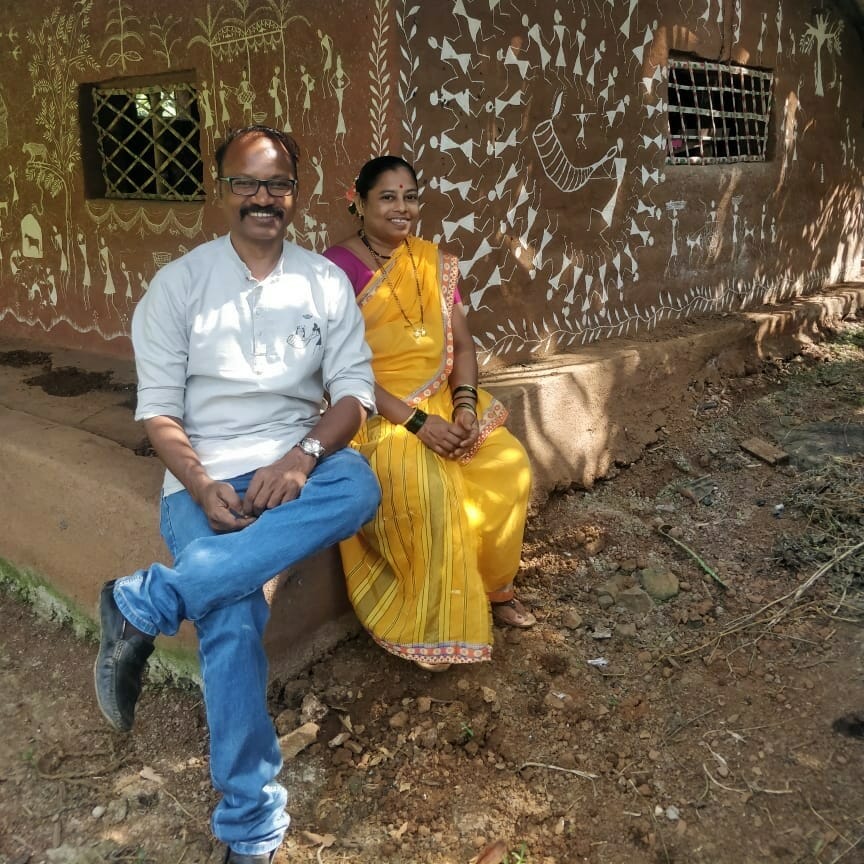
All it takes is a dafli and a crowd to sing to for a mild-mannered Prakash to turn into a prominent voice of dissent. In 2019, he collaborated with the Swadeshi Movement, a multi-lingual hip-hop crew that believes in ‘music with a cause’. The Warli Revolt is a song by MC Mawali and MC Tod Fod where the former raps in Marathi and the latter in Hindi against the destruction of forest land. What makes the song more powerful is Prakash’s voice in the chorus: “Manus mhanun jagnyasaathi amhala sara karaycha, Aaj nahi udyala maraycha tar kashala maga saraycha” (It is only us who will have to do everything to be able to live as a human, everyone is going to die at some point so why fear and back down now).
Prakash gave a melody to the poem he read in an old Marathi book. But this is not the only song he is known for. He penned Wagh Deva that same year, which is a prayer to the Aarey leopards to come to the rescue of everyone: “Wagh deva jungle vachava ya tu dhav re, Udvasta zale jeevan, pakshanchi tutali gharti; Geli amchi sheti, haravli naati goti, Hi naati vachava yela tu dhav re wagh deva” (O Leopard god, come and save our forest. All living beings here are being uprooted, look the birds have lost their nests; We have lost our farmlands, and our relationships have been ruined. Come to save these relationships, O Leopard god).
“I am inspired by tribal activist Soni Sori, Dr Babasaheb Ambedkar and our tribal hero Birsa Munda. Whenever I am invited by colleges to speak, I remind students that the purpose of education is to understand the struggles of the downtrodden and speak up against all injustices in whatever way possible,” he says.
He adds that music and poetry are the most effective ways to express dissent. “A five-minute song is more powerful than an hour-long speech.”
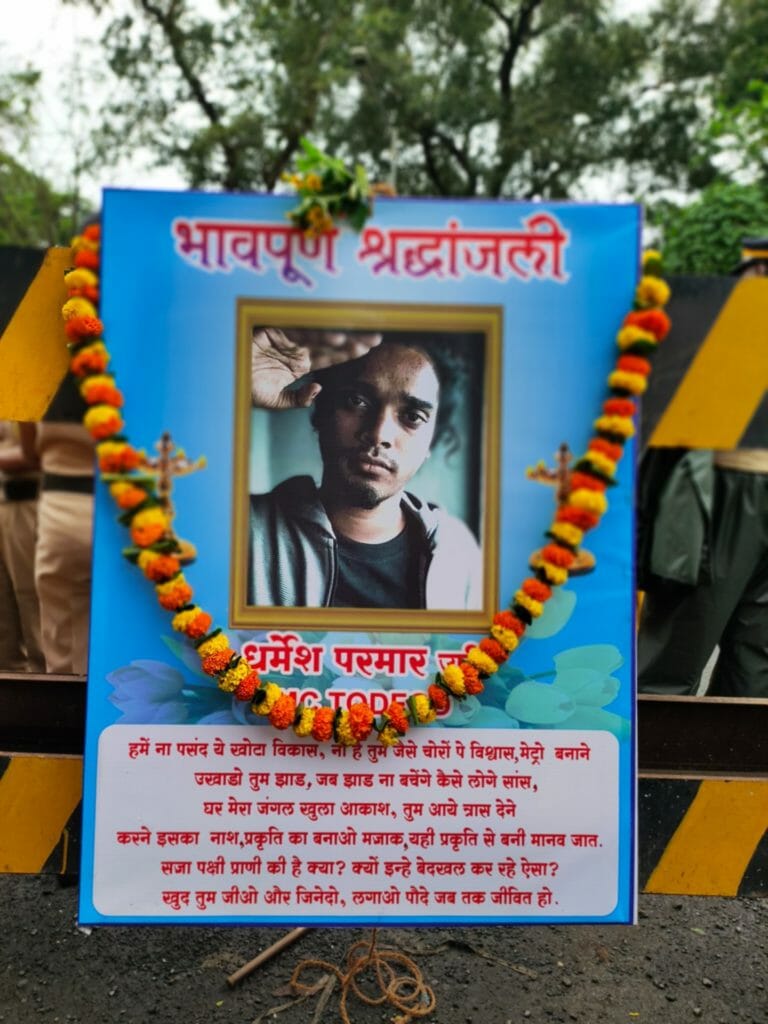
Ambedkarite solidarity
Samata Kala Manch, an Ambedkarite cultural troupe part of the Republican Panthers Caste Annihilation Movement, had a notable presence at Aarey. Their performance of Jungle Cha Raja at Aarey’s Birsa Munda Chowk in 2019, written by activist-poet of 1990s Vilas Ghogre, evoked a great response from the protestors: “Tekdichya paythyala chotasa gav re, jungle cha raja hay tuza nav re; Shetat galun kashtacha gham, kalya matit pikavto sona; tuza asuni junglacha raan, tulach nahi khaila daana” (You stay near the mountains, you are the king of the jungle; You toil in the farms, grow gold from mere mud; this entire land is yours and yet you are deprived of your rightful morsel).
“The response we get when we sing songs on issues in local languages can be very heartwarming. For instance, to cover our finances we move around a small pouch for people to contribute voluntarily. When you see a grandmother wholeheartedly put a crumbled old note of Rs 20 and then kiss your cheek with all the love she has to offer because she could relate to issues you are talking about, that experience is something else,” says Suvarna Salve, the lead singer of the group.
Hi, I was wondering if I could get in touch with the author of this article. I am working on a museum curatorial project that includes the warli community and their ecological narratives through art. For which, I wanted to connect with Prakash Bhoir. Would appreciate a reply. Thank you!
Hi, Diksha. Please email me at eshan@citizenmatters.in